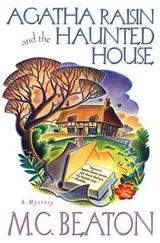Lynne Tillman - Haunted Houses
Здесь есть возможность читать онлайн «Lynne Tillman - Haunted Houses» весь текст электронной книги совершенно бесплатно (целиком полную версию без сокращений). В некоторых случаях можно слушать аудио, скачать через торрент в формате fb2 и присутствует краткое содержание. Год выпуска: 2011, Издательство: Red Lemonade, Жанр: Современная проза, на английском языке. Описание произведения, (предисловие) а так же отзывы посетителей доступны на портале библиотеки ЛибКат.
- Название:Haunted Houses
- Автор:
- Издательство:Red Lemonade
- Жанр:
- Год:2011
- ISBN:нет данных
- Рейтинг книги:5 / 5. Голосов: 1
-
Избранное:Добавить в избранное
- Отзывы:
-
Ваша оценка:
- 100
- 1
- 2
- 3
- 4
- 5
Haunted Houses: краткое содержание, описание и аннотация
Предлагаем к чтению аннотацию, описание, краткое содержание или предисловие (зависит от того, что написал сам автор книги «Haunted Houses»). Если вы не нашли необходимую информацию о книге — напишите в комментариях, мы постараемся отыскать её.
, Tillman wries of the past within the present, and of the inescapability of private memory and public history. A caustic account of how America makes and unmakes a young woman.
Haunted Houses — читать онлайн бесплатно полную книгу (весь текст) целиком
Ниже представлен текст книги, разбитый по страницам. Система сохранения места последней прочитанной страницы, позволяет с удобством читать онлайн бесплатно книгу «Haunted Houses», без необходимости каждый раз заново искать на чём Вы остановились. Поставьте закладку, и сможете в любой момент перейти на страницу, на которой закончили чтение.
Интервал:
Закладка:
Jane was the keeper of the family home movies. She’d watched them by herself when she was no more than seven. Getting out the 8mm projector, setting it up, making the room dark. The family before she was born. The family after she was born. Everyone running toward the camera when Daddy yelled action. Daddy said he liked to get movement into everything. The trip to West Point before she was born. The trip to Canada when she was eight. The sister, as an adolescent, who hates being photographed. That sister, a baby, a cherub who smiles at the camera, Daddy. The other sister crying, sunlight on her shiny hair. She sits in a stuffed chair, mostly in shadow, tears running down her face, her red mouth loose with fatigue. The fight between sister and Mom. Mom waving the camera away, jerking her head to the side. Daddy tan from a trip he made alone to Bermuda when Mom was pregnant with her. Shots of that pregnancy. She lumbers slowly toward the camera, her daughters running to her side, jumping in front of her. They’re small and active, she’s big, her movement contained, labored. When slowed down the movements and gestures will of course reveal more, as if Proust had his hand in it and not just technology. Jane doesn’t slow down the projector when she’s a little girl. At full speed she watched herself, six months old, being given the bottle by Mom, who’s looking at the camera, Daddy, so that the bottle doesn’t go into Jane’s mouth but waves near it.
She sees him for two weeks. Nearly three weeks. Jane moves the coffee cup to her mouth and remembers his eyes above his coffee cup. The other woman he’s with is older than she is and older than him. He’s an actor and in a play and for two weeks she walks him to his rehearsals and watches him disappear behind a wooden door. She won’t sleep with him until everything is right and he’s left the woman. He kisses her and swings her in the air. Jane is pretending the brim of the cup is his mouth touching her mouth. She watches him move his leg. His leg touches hers as his lips touch hers. Words come out of his mouth. He tells her he loves her and that he’ll always love her. She wants his words to be physical. The scene repeats. He moves his leg, he kisses her, he loves her. Jane tells Maria about him and Maria laughs. “You believe that line. You middle-class girls. Jesus.” Jane wants to walk away from her friend and sit alone in the cafeteria, but she doesn’t. She drinks more coffee and they talk about King Lear . Jane said in class that Lear wanted Cordelia sexually and the girl in front of her turned, her hand raised, as if to hit her. The teacher, a man, intervened. “Now, now,” he said. “Now, now, girls.” But she didn’t give her father what he wanted. She didn’t say what he wanted to hear, that she’d love him more than anyone, even her husband. “Cordelia’s a goody-goody,” Maria said, watching Jane’s reaction. “I like Regan and Goneril.”’ “But they’re horrible,” Jane said. “Lear must’ve done something to them. Goneril says,’He may hold our lives in mercy.’ Remember? They were scared of him.” “Why wasn’t Cordelia?” “She believed him,” Maria answered.
Safer than trust too far.
Let me still take away the harms I fear,
not fear still to be taken. I know his heart.
Her sister’s boyfriend was going away and he let Jane stay in his penthouse overlooking Central Park, alone, the way she or her sister couldn’t be in her sister’s apartment. The penthouse was two rooms sitting on a roof, like a doll’s house with a panoramic view of the city. Jane walked into the apartment, shut the door behind her, and phoned Jimmy and asked him to come over. He said he was busy. She thought of calling Maria, but worried that Maria would think she’s a sissy. Jimmy said we had to give up everything and quoted Meister Eckhart: “For verily thy comforts are thy foes.”
He hadn’t phoned the way he said he would. But it hadn’t been that long. He must be busy. The play. Maria is a cynic. Her father left her mother when she was two and they weren’t married and her mother was left with Maria and two other kids. Boys. Maria didn’t like men, anyway. I bet I’m the first bastard you’ve ever met, she said to Jane. Jane smiled, remembering. It’s better not to have slept with him. And two more weeks passed with his absence as felt as his presence. Jane wanted to tell Larry what had happened but didn’t know how. Maybe she’d find him and kill him. Blood revenge. She didn’t tell Jimmy.
Jane turned on the radio. “Sally, go round the roses. Roses they can’t hurt you.” Unless you press your finger on a thorn. She turned on the television and turned off the sound. She placed a book in her lap and watched the news turn into a commercial. “Sally baby cry, let your hair hang down.” Jane looked at herself in the mirror over the couch. She couldn’t read. “They won’t tell your secret.” The refrigerator was just a kiss away and she walked to it and opened the door. “saddest thing in the whole wide world. See your baby with another girl.” At least she hadn’t. Jane looked again in the mirror, then walked out onto the terrace. It was late. Jane felt old. There were views of indifferent buildings that looked solid. From other angles they looked flat, as if they were nothing but surfaces pretending to be more. Actors of a sort. Some people were still awake. Their lights were on. Maybe they’d fallen asleep with the TV on, maybe they were making love, or smoking a cigarette. Someone might be crying. Statistics let you know that anything is possible. A jet flew overhead. Someone is deceiving a husband, a wife. They’re walked in on. The woman pulls the sheet to her naked breasts, the man grabs for his pants. Or a fight over money. Someone pulls a knife. Jane sees the scenes as set pieces with all the actors knowing their parts. Someone pulls a knife out of a kitchen drawer. Someone you would never think capable. A quiet boy. A good student. He never made trouble. Most murders, Jane had read, occur within the family or between people who know each other. A murder. A knife plunged into the naked woman’s body, over and over, the way it would be reported in the paper the next morning, with her picture on page three. She’s smiling. It’s her high school graduation picture, the one she never wanted anyone to see. She put up a struggle and his skin is under her fingernails. Maria thought Jane was morbid. Jane told her it was just because she saw too many movies and read too many mysteries. One of the lights went off and Jane turned from the view.
Jimmy’s mother was with him, but he didn’t want Jane to know that. The lazy way out or the cowardly way. His mother would say that he lacked motivation. She had come to the city to bring him towels, new pants, and underwear. Don’t buy me underwear anymore, he told her, his ass naked under his jeans. The flesh around her eyes quivered like Jell-O when you touch it with a spoon. He couldn’t stand it. “I don’t wear underwear,” he said. And she asked, “Even in the winter?” Then, a moment later, “Don’t your pants smell?” She made him laugh and his laughing made her laugh and suddenly it was easy to be with her. She even took off her jacket. Well, Kerouac loved his mother, and he was okay.
Alone, in this little house, safe, out of the world, isolated from it or so it seemed, Jane took off all her clothes and walked naked in the two rooms. She rarely was naked. In her family the girls covered up because of their father. Her sisters wore robes over their bras and underpants, everything taken off out of their father’s sight. When she was little Jane wondered when she would have to cover up. Or stop going to the bathroom with him and watching him piss. Urinate, he said. Jane did stop doing it at a certain age. She covered up and didn’t walk around naked anymore, but she can’t remember when or how it happened. It came about naturally. Something must have happened. Something was said. Something that got lost. Jane stood in the middle of the living room, her arms crossed over her breasts. She might have been standing and talking to someone else, someone other than herself. When Jane was naked she felt that someone else was present, looking at her.
Читать дальшеИнтервал:
Закладка:
Похожие книги на «Haunted Houses»
Представляем Вашему вниманию похожие книги на «Haunted Houses» списком для выбора. Мы отобрали схожую по названию и смыслу литературу в надежде предоставить читателям больше вариантов отыскать новые, интересные, ещё непрочитанные произведения.
Обсуждение, отзывы о книге «Haunted Houses» и просто собственные мнения читателей. Оставьте ваши комментарии, напишите, что Вы думаете о произведении, его смысле или главных героях. Укажите что конкретно понравилось, а что нет, и почему Вы так считаете.












